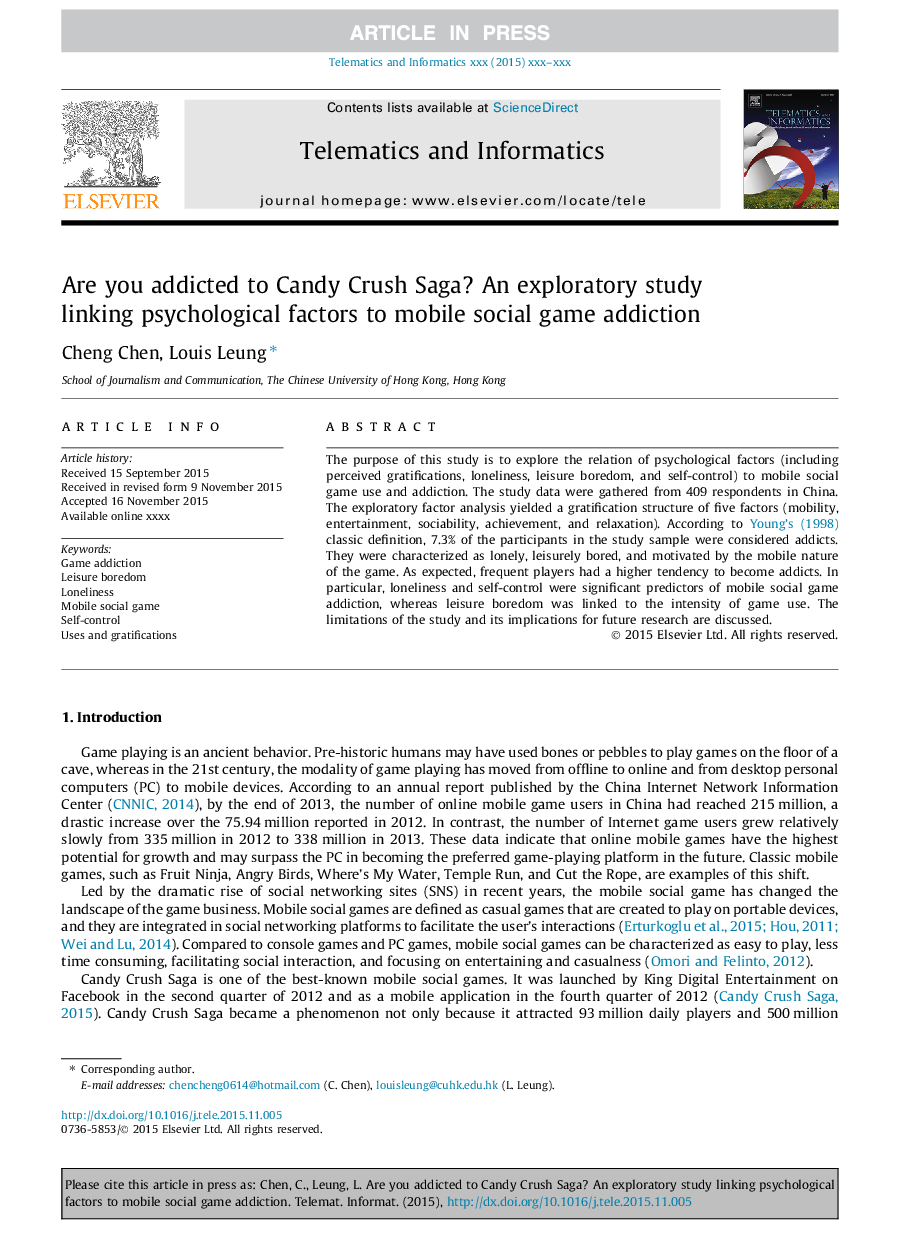| Article ID | Journal | Published Year | Pages | File Type |
|---|---|---|---|---|
| 10343983 | Telematics and Informatics | 2016 | 12 Pages |
Abstract
The purpose of this study is to explore the relation of psychological factors (including perceived gratifications, loneliness, leisure boredom, and self-control) to mobile social game use and addiction. The study data were gathered from 409 respondents in China. The exploratory factor analysis yielded a gratification structure of five factors (mobility, entertainment, sociability, achievement, and relaxation). According to Young's (1998) classic definition, 7.3% of the participants in the study sample were considered addicts. They were characterized as lonely, leisurely bored, and motivated by the mobile nature of the game. As expected, frequent players had a higher tendency to become addicts. In particular, loneliness and self-control were significant predictors of mobile social game addiction, whereas leisure boredom was linked to the intensity of game use. The limitations of the study and its implications for future research are discussed.
Related Topics
Physical Sciences and Engineering
Computer Science
Computer Networks and Communications
Authors
Cheng Chen, Louis Leung,
